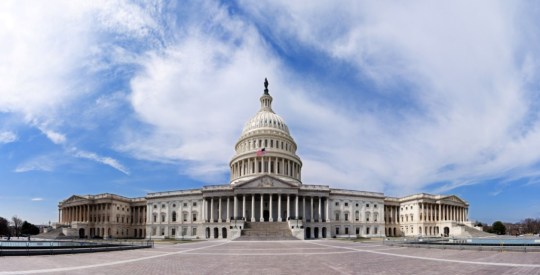Triad Guaranty Inc. (TGIC) said late Monday it swung to a huge first-quarter loss of $150 million, or a $10.09/share loss, from net income of $17.3 million, or $1.16/share, last year. To say the quarterly loss missed estimates would be an understatement — analysts had expected a loss of $2.61/share, according to Thomson Financial. “The negative trends we encountered during the second half of 2007 continued to impact us during the first quarter of 2008,” said Mark Tonnesion, Triad’s CEO. “Housing prices remain under pressure across the country and the distressed markets of Florida, California, Arizona and Nevada continue to be particularly affected.” Tonneson said that distressed markets contributed 67 percent towards a $171.4 million jump in loss reserves during the quarter, underscoring the risk embedded in the company’s current insured portfolio. That risk led Triad to conclude earlier this year that it would be easier to replicate itself with a clean balance sheet, moving its existing portfolio into run-off, rather than attempting to recapitalize its existing operation; the company said earlier this month that it is in negotiations with Lightyear Capital LLC, a New York-based private equity firm, to establish a new mortgage insurer. Total insurance in force reached $67.6 billion at the end of the quarter, Triad said, compared with $61.5 billion in the year ago period; all of the company’s $1.9 billion in new business was channeled through its so-called primary channel (primarily flow business, but also including bulk structured transactions). The insurer ceased underwriting insurance policies at the modified pool level late last year after losses on policies in the channel began to escalate quickly. It’s well worth nothing that the vast majority of insurance in force at the end of the quarter sat in the company’s flow line of business, to the tune of $42 billion. That said, a look at credit quality and portfolio composition shows why Triad would rather run — and not walk — away from its existing book of business. Credit quality worsens A look at credit quality metrics finds both rising delinquencies and increasing loss severity at the troubled insurer, which was downgraded to junk status in early May by Fitch Ratings. Average severity on paid claims in Triad’s primary business was $42,600 in the first quarter, up from $31,300 one year earlier; average severity on modified pool claims jumped to a much more painful $65,000, up significantly from $23,700 in the first quarter of 2007, the company said. Of $11.1 billion of primary risk in force, net of reinsurance and other hedges, Triad said that $1.4 billion sat in option ARMs; 12.3 percent of primary risk involves properties that are either second homes or investment properties, as well. Delinquencies, as would be expected, continued their upward trending during the quarter. A total of 21,916 properties sat in some stage of delinquency at the end of Q1, up 30 percent from just one quarter earlier. The deliquency trends mirror those at MI competitor PMI, who also reported a similar trending in borrower delinquencies on Monday. For more information, visit http://www.triadguaranty.com. Disclosure: The author held no positions in TGIC when this story was originally published. HW reporters and writers follow a strict disclosure policy, the first in the mortgage trade.
Triad Posts $150 Million Q1 Loss
Most Popular Articles
Latest Articles
How will a GOP-controlled government impact retirement policy?
With changes coming to the federal government in January, there are a lot of implications for retirement policy going forward.
-
Ginger Bell and Fobby Naghmi on leadership deficits in the mortgage industry
-
Trump tariffs would result in homebuilder price increases
-
Will Trump, Project 2025 kill HUD?
-
The best real estate CRM for every budget in 2024
-
Side files restraining order against Alexander brothers for allegedly moving loan collateral





